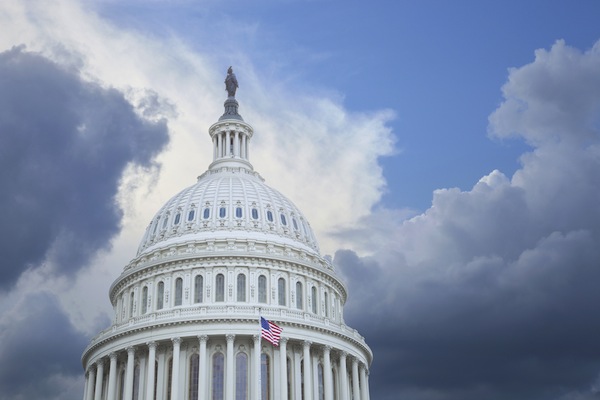6 Issues Where Bipartisan Agreement Means No Productive Change

 Dan Thornberg / shutterstock.com
Dan Thornberg / shutterstock.com
Bipartisanship is met with glee in the hyper-partisan atmosphere of modern politics. Congress being at its most divided point in history, a bipartisan agreement is usually a sigh of relief for many Americans.
However, this thankful fervor is not all it is cracked up to be. Bipartisan agreements often do more to mask alternative viewpoints than they do to bring about meaningful compromise.
Here are six top issues on which bipartisan agreement means no discussion, no reform, and no change.
1. Electoral reform
Both parties have gone to great lengths in and out of the courtroom to prevent non-party members from participating in primary elections.
Electoral reforms, such as California's nonpartisan primary, have been opposed by both major parties because partisan candidates are forced to compete for nonpartisan voters making it more difficult for hard-lined partisan candidates to win their primary.
The effect of such a nonpartisan system is greatest in districts that have been heavily gerrymandered over the years, because, for the first time, viable candidates are held accountable to voters outside their partisan base.
Allan Zaremberg, CEO of the California Chamber of Commerce stated in a PPIC discussion:
“With the open primary and the top-two runoff, the elections for most seats are no longer decided in the primary. Let me tell you, the parties hate this. The parties were the ones who got it thrown out in the 1990s because it created more competition. But, for the people I think it’s good. I think it’s good for everybody.”
Partisan gerrymandering is still prevalent in American politics. If parties agree to keep safe seats and run their favored candidate in seats up for grabs, nothing changes.
2. Privacy Rights
The Patriot Act under George W. Bush -- in the frantic aftermath of 9/11 -- passed with wide bipartisan support. It is indicative of a trend toward sacrificing personal liberty for protection, one that has reached new heights with the revelations of NSA surveillance programs.
The result is as an agreement between the two parties that it is more important for government to have extended powers than it is to uphold the privacy rights of the Fourth Amendment.
3. Foreign Policy
Bipartisan support of foreign policy initiatives may appear as a united front in our diplomacy with other nations. However, it also hampers public discussion of important issues that ought to be determined by people who fall outside of the two parties. Drone policy has received wide bipartisan support.
The policy began under the Bush administration and is supported in the official GOP Platform. Democrats, in theory, are less supportive of drone strikes and do not mention it in their platform at all.
That being said, President Obama has expanded the use of drones beyond even the policies enacted by his predecessor and has been met with little criticism from members of his own party. The practice of drone use is controversial due to its extrajudicial nature, yet bipartisan agreement has quieted the issue on Capitol Hill.
4. Drug Policy
The policies of the war on drugs were enacted with bipartisan support, and consequently a lack of progress in mirroring public opinion.
Recent polls indicate that a majority of American citizens support Marijuana legalization. Two states, Colorado and Washington, legalized it by vote.
Despite these trends, it is still a Schedule I drug and is more illegal by the DEA's standards than Schedule II cocaine. Medicinal marijuana dispensaries, which comply with California state law, are regularly being shut down and raided by the DEA.
In 2011, under the 197,050 people imprisoned under federal jurisdiction, 94,600 were serving time for drug offenses, while just 14,900 served time for violent offenses. Under California jurisdiction, drug offenses accounted for 237,000 of the 1,362,028 offenses.
The federal government spent $24.5 billion on drug control in FY 2012. The FY 2014 request is a 3.7 percent increase, amounting to $25.4 billion, though current federal efforts have produced little results.
5. Defense Spending
The United States accounts for 41 percent of global defense expenditure. Bipartisan agreement on this aspect of our military philosophy has lead to America outspending the next 15 highest countries combined. There is a strong argument for why this is necessary for a global super power, but consideration of reigning this expenditure in significantly does not have a seat at the table in Washington, D.C.
Defense spending outnumbers spending on education, infrastructure, and science and medical research, even after they are all combined and then multiplied by three. These numbers don't suggest a fault in our system, but another worthwhile discussion stifled by bipartisan agreement.
6. Presidential Debates
Bipartisan agreement in presidential debates is a symbolic example of how agreements between the top two parties devastate the freedom of discussion. This article outlines the memorandum that both campaign's agreed upon in the 2012 Presidential Debates.
The agreement limited the scope of the topics covered in the debates. It placed boundaries on the political battle grounds preferable to the parties, rather than covering the topics the public wanted to hear. Many of the issues excluded from the debate, unsurprisingly, can be found on the above list.
-----
There are more than two sides to every issue, and when the two power parties come to an agreement the solution is deemed final. Due to the fundamental disagreements between Democrats and Republicans, many bipartisan solutions are reached on issues where the matter at hand is keeping the power both parties have accrued.
Bipartisan agreements purport to be representative of the entire constituency-- but with independent voters accounting for 40% of the political landscape, it's clear that it is not . There are issues that the two parties agree on, but that is not indicative of whether or not they have been settled in the American political conversation.





